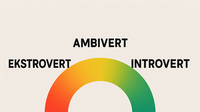
Saying “no” is like asserting your independence, but for many of us, this little word comes with a lot of stress, shyness, and guilt. Although culture has treated it as rude or selfish, in reality, saying “no” is one of the most honest gestures you can make for yourself.
Saying “no” means respecting your time, your energy, and your emotional needs. And people with high self-esteem do this without feeling guilty because they know it’s the only way to stay balanced.
If you feel embarrassed every time you have to turn someone down, try these 10 polite ways to say "no," all backed by psychology, and say goodbye to guilt!
1. Discover where your feelings of guilt come from
Are you the one feeling guilty or is someone else making you feel this way? Do the demands being made of you seem reasonable or are they just manipulation wrapped in sweet words? If others get offended when you set boundaries, the problem isn't your "no," it's theirs. And maybe it's time to put some distance between you.
2. Understand that “no” is a gift
When you say “no” to someone, you’re really saying “yes” to yourself. You’re making space for the things that matter most to you. Your time is precious, and not wasting it satisfying other demands is an act of self-love.
3. Stop comparing yourself to others
Just because someone else always says “yes” doesn’t mean you have to do it too. We all have our own pace, priorities, and limits. The sooner you understand this, the easier it will be to not compare yourself and not feel bad when you decide differently.
4. Take care of yourself
If you're saying "no" because you're tired, exhausted, or simply don't have the emotional capacity to deal with a situation, it's completely justified. You're not a machine. If you don't listen to the needs of your body and mind, no one else will.
5. See everything in a broader perspective
Sometimes people get upset when you say "no," but don't be so quick to assume that the problem is with you. Maybe they have high expectations or are experiencing something that has nothing to do with you. Reflection and a conversation with trusted friends always helps.
6. Be reasonable.
Saying “no” doesn’t mean being harsh or harsh. You can refuse gently, explain calmly, and maintain respect for the other person while also respecting yourself. Boundaries are not walls, they are bridges built with sensitivity.
7. Be determined, but not stubborn.
Saying “no” takes practice. Sometimes, we say “yes” out of fear, not desire. Learn to say “no” with intention, without fear of the other person’s reaction. Strength does not lie in a loud voice, but in the calmness when speaking for yourself.
8. Be honest, not harsh.
There's no need to use "no" as a means of punishment. If you're honest and sensitive in your communication, others will understand that you're not rejecting the person, but the request. And that makes all the difference.
9. Forgive yourself.
Sometimes you will say “yes” when you don’t want to. You will feel guilty, you will think “why did I do it?” But punishing yourself will get you nowhere. Forgive yourself and learn from what happened. No one is perfect, neither you nor the other party.
10. Say “yes” to yourself
Learn to say “yes” to things that fill you, that bring you joy and peace. The more you nurture this connection with yourself, the less you will feel the need to please others at personal cost. The right “no” is the most important “yes” to yourself.
Source: Your Tango











